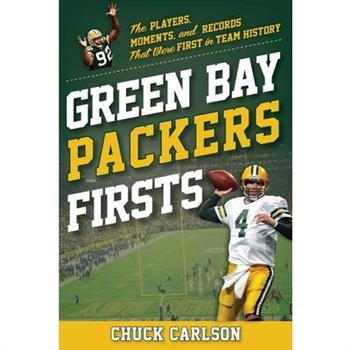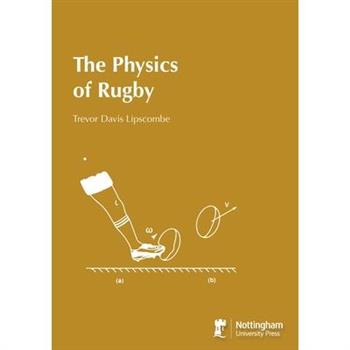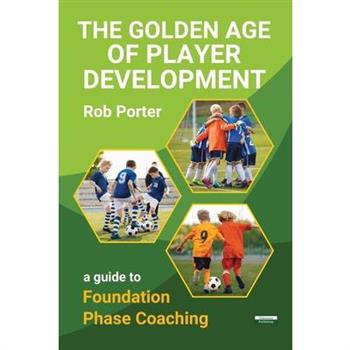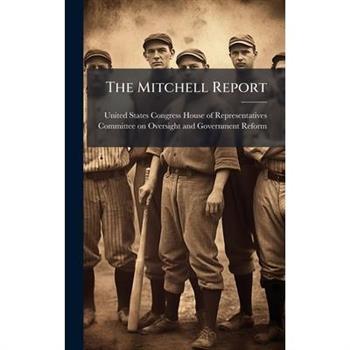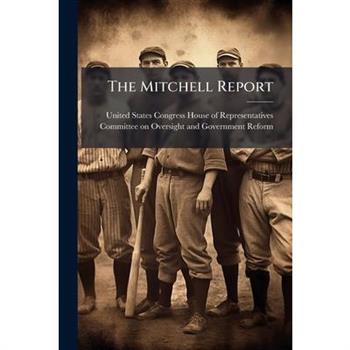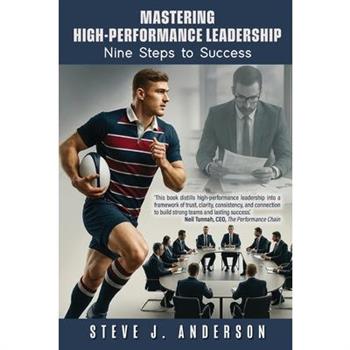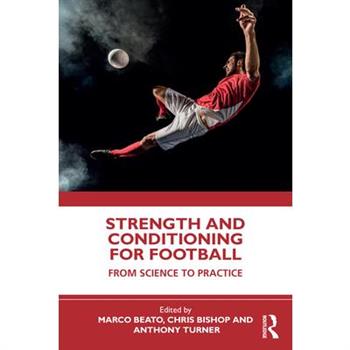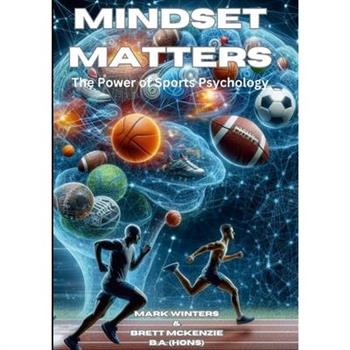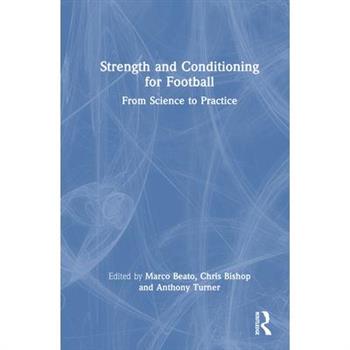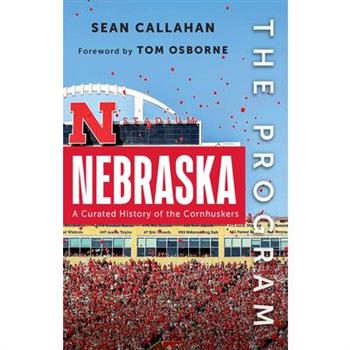Socceroos in Scotland
Socceroos in Scotland is a fascinating dive into the close footballing relationship between Australia and Scotland. While Scots had a significant impact on the development of the game Down Under, roles started to be reversed from the 1980s, when the first Aussies tried their luck in the Scottish game. From Davie Mitchell at Rangers to Ange Postecoglou at Celtic, the influence of Australians in Scottish football has grown steadily over four decades. Finding a Socceroo in a Scottish squad has gone from being a novelty to a staple. From Gretna in the south to Ross County in the far north, clubs all over the country have benefited from recruiting an Aussie. This book features exclusive interviews with several of the key protagonists in this growth, including Tony Vidmar, Scott McDonald, Danny Invincibile, Erik Paartalu and Dave McPherson. There are also chapters looking at the impact of the likes of Craig Moore, Mark Viduka, Jackson Irvine, and Tom Rogic.There are insights from some of the Socceroos' former teammates and coaches, in addition to the thoughts of some of the journalists who have observed the players involved at close quarters.
Golf Training Aids -- The Smarter Way to Lower Scores
Unlock Your Best Golf-Without Wasting Time or Money on the Wrong Gadgets. There are thousands of golf training aids out there, but how do you know which ones actually work? How do you avoid spending money or relying on hit-or-miss advice from coaches or your well-meaning golf buddies?That's exactly why this book exists.Golf Training Aids - The Smarter Way to Lower Scores is your no-nonsense, entertaining, and practical guide to the best golf gadgets that actually help golfers improve-all in one place.Whether you're a beginner, weekend warrior, or low-handicap player, this book reveals what really works, how to use it, and how to finally build the consistency you've always wanted.Inside This Game-Changing Book, You'll Discover: ✅ The best swing trainers for tempo, alignment, and posture✅ Putting tools that make practice fun, focused, and effective✅ Short game aids pros actually use to master chips and pitches✅ Mental game tools to sharpen focus and reduce nerves✅ Gadgets to fix common flaws like slicing, topping, or early release✅ What training aids NOT to buy-and whyIdeal for: Father's Day, holidays, birthdays, or as a smart surprise for the golfer who "has everything" but hasn't hit their full potential yet.Don't leave your game up to chance. Discover the training aids that can truly change your game and bring more confidence to every round. Make better golf your new reality.
Lawn Tennis, Describing The Various Kinds Of Courts And How To Make Them
Explore the early days of lawn tennis with this detailed guide, "Lawn Tennis, Describing The Various Kinds Of Courts And How To Make Them." This historical text provides insights into the construction and maintenance of various tennis courts, offering a glimpse into the sport's formative era. Ideal for tennis enthusiasts and sports historians alike, this book captures the essence of a bygone era.This work has been selected by scholars as being culturally important, and is part of the knowledge base of civilization as we know it. This work was reproduced from the original artifact, and remains as true to the original work as possible. Therefore, you will see the original copyright references, library stamps (as most of these works have been housed in our most important libraries around the world), and other notations in the work.This work is in the public domain in the United States of America, and possibly other nations. Within the United States, you may freely copy and distribute this work, as no entity (individual or corporate) has a copyright on the body of the work.As a reproduction of a historical artifact, this work may contain missing or blurred pages, poor pictures, errant marks, etc. Scholars believe, and we concur, that this work is important enough to be preserved, reproduced, and made generally available to the public. We appreciate your support of the preservation process, and thank you for being an important part of keeping this knowledge alive and relevant.
Golf For The Late Beginner
"Golf For The Late Beginner" is the perfect guide for anyone taking up golf later in life. Henry Hughes provides clear, concise instruction tailored to the unique challenges faced by older beginners. From mastering the fundamentals to developing a consistent swing, this book offers practical advice and easy-to-follow exercises. Discover how to improve your game, avoid common mistakes, and enjoy the social and physical benefits of golf. Whether you're a complete novice or looking to refine your skills, this book will help you get the most out of your time on the course.This work has been selected by scholars as being culturally important, and is part of the knowledge base of civilization as we know it. This work was reproduced from the original artifact, and remains as true to the original work as possible. Therefore, you will see the original copyright references, library stamps (as most of these works have been housed in our most important libraries around the world), and other notations in the work.This work is in the public domain in the United States of America, and possibly other nations. Within the United States, you may freely copy and distribute this work, as no entity (individual or corporate) has a copyright on the body of the work.As a reproduction of a historical artifact, this work may contain missing or blurred pages, poor pictures, errant marks, etc. Scholars believe, and we concur, that this work is important enough to be preserved, reproduced, and made generally available to the public. We appreciate your support of the preservation process, and thank you for being an important part of keeping this knowledge alive and relevant.
Bill Kroen's Golf Tip-A-Day 2026 Day-To-Day Calendar
Spend quality time on the links every day with Bill Kroen's unparalleled knowledge and expert tips. Bill Kroen knows more about golf than you could forget after two rounds at the clubhouse bar. From the latest in rules and etiquette to accessible instruction on form and technique to tips on equipment selection, psychology, and sports philosophy--it's all in here. Bill Kroen's Golf Tip-A-Day 2026 Calendar provides a full year of insight, expertise, and love of the game. Features include: No single-use plastic Page size 4.606 x 4.606 Recyclable chipboard easel backer for desk or tabletop display Printed on FSC(R) certified paper with soy-based ink Tear-off pages Back of pages are blank for notes or shopping lists Day/Date reference on each page Combined weekend pages Official major world holidays and observances Every page features a new insightful instruction from one of the world's leading golf teachers and writers.
Things That Make Me Swear On The Golf Course
Golf courses are a wild world of unexpected drama, exaggerated scores and stories, along with questionable fashion statements. Wilson's comedic examination of the game of golf and the course on which it is played will have you in stitches every time you play a round of golf. Play the links with Wilson's stories and insights in your mind, as you meet the entertaining, and occasionally idiotic characters who attempt to play the "sport of kings". These anecdotes and situations will remind you of your usually "common sense", occasionally logical friends and relatives, who turn into Jekyll and Hyde on the golf course. You'll go from the chaos at the golf Pro shop, where the guys don't know their tee time or who they are playing with, to the "beer cart girl", who you only see at the first tee and the 18th hole. All this, plus the sport itself, and the "players" are hilariously examined and described under the golf gods microscope. Wilson brings to light, and to your amusement, the situational annoyances and nuances of the "typical" golfer and the course, that will make you swear, laugh and ponder in disbelief. These tales that will send you into the rough with each swing, putt, lost ball or foot-wedge. Tighten your golf shoes for Wilson's insane roller-coaster ride on the golf links.
Greatness
"This is an accomplished, masterful novel that expertly captures the psychology of an athlete who has risen to heights most people will never know..." -- Kirkus ReviewsGREATNESS is a poetic and powerful portrait of a lonely athlete locked in battle with time, memory, and himself. At once intimate and epic, it offers a riveting glimpse into the twilight of a generational talent.On the eve of his retirement, tennis legend King returns to Flushing Meadows for his final US Open. Surrounded by the roar of adoring crowds and the tight-knit team that has become his surrogate family, he sets his sights on one last, improbable run at glory. Aging, injured, and haunted by the past, King still knows, perhaps better than anyone, what it takes to win.But off the court, a deeper reckoning awaits. Since the age of four, tennis has been his entire world-his parents' dream of greatness the only life he's ever known. Now, with his career nearing its end, King must confront old betrayals, fierce rivals, the weight of grief, and the stirrings of unexpected love. As his final match draws near, so too does the answer to the question he's never dared to ask: What is the true cost of greatness?
Keeping The Ball
During the teaching-learning process of our training sessions, the ability to keep the ball becomes a very valuable commodity. By presenting situations of collaboration-opposition with the objective of maintaining possession and focusing on the development of the player's technical abilities, these technical-tactical activities represent a very useful resource. In this book you will find 50 color examples of training activities that will help to develop decision-making that is specific to the internal logic of the game. These activities will enhance your training sessions and can also be adapted to suit the unique needs of your team. "Teach them to play, so that you can them teach to compete" is a phrase that I coined to identify the central nucleus of this book, which stems from the deep knowledge of Iv獺n Pern穩a as a coach and teacher.From the prologue by Miguel ?ngel Serra簽o Ni簽o, Director of the coaching school atthe Real Federaci籀n de F繳tbol de Madrid.
Developing a Pitcher
Are you looking for the most comprehensive training guide available for young baseball players learning to pitch? From the sport-performance training facility, HUSTLE3 (H3), comes a book for youth to high school athletes that provides simplified, sustainable methods for developing consistent pitching mechanics, building arm velocity, and throwing strikes with confidence. You will find detailed explanations of drills and exercises, with step-by-step illustrations and scannable QR codes for additional visual tutorials, along with templates for proven strength programs and arm care routines-all designed to support long-term development and reduce risk of injury. Backed by foundational science and modern technology, this book offers a clear, structured pathway for pitchers to elevate their skills from youth leagues through high school.
Turf Wars
An NFL insider's explosive account of the ruthless power struggles between owners and players over the future of football.During his fourteen years as the head of the NFL Players Association, DeMaurice Smith was a front line advocate for football players through some of the most tumultuous crises in NFL history: Colin Kaepernick's protests, Deflategate, a lockout, two collective bargaining agreements, and more. But after witnessing the league's troubling response to discrimination and racial unrest, both within the league and beyond, Smith realized it was time to pull back the curtain and speak truth to power. Drawing from his years of unprecedented access and unparalleled knowledge of America's favorite sport, Smith documents his years leading the NFLPA and explains how the NFL distorts the truth, telling partial stories to insulate itself and grow its $20-billion-a-year brand--and the players' battles to protect themselves. From contract negotiations to battles over suspensions, Smith shows us how the union fought to protect players from the greed, racism, and dishonesty the league is built on. He also takes readers inside closed-door meetings and unreported conversations and confrontations with the industry's most powerful figures such as Robert Kraft, Jerry Jones, Tom Brady, and Roger Goodell. Turf Wars puts every NFL crisis--both familiar and lesser known--within a broader cultural and historical context, framing the league's extraordinary rise as a mirror to America's own history. Revelatory and profound, Turf Wars is a book about the soul of football: its degradation, and how to save it.
1978
The 1978 finals series was one we'd never seen before - and will likely never seen again. Seven-tackle sets. Not one but two matches needing to be replayed. One of which was the grand final. And the other one saw a team wanting the league to erase the result and stage a replay. Yes, a replay of a replay. As for that grand final replay, well that was played on a Tuesday afternoon - the only week-day premiership decider in history. If all that wasn't enough, one of the finalists was a perennial also-ran that ended up minor premiers. Another had two of their star players rubbed out due to suspension. And two of the other finalists were on the cusp of dominating the 1980s. Yes, the 1978 finals series was amazing.
Building Champions
Reveals the diverse backgrounds and journeys of women's tennis champions shaping the sport's unpredictable future.Featuring a foreword by Billie Jean King. Since the turn of the century, women's tennis has established itself as one of the world's most unpredictable sports. With 36 different Grand Slam champions from 2000 to 2024, upsets have become the norm and underdog triumphs are almost guaranteed. These young winners are not all serve bots or baseline bruisers hailing from the tennis academy system. Instead, their origin stories differ considerably. A generation of Czech talent eclipsing the richest tennis nations; child prodigies like Coco Gauff modelled by her parents; Kim Clijsters defying the odds to become a comeback champion after giving birth; and Emma Raducanu crafting a coaching rotation system to achieve her fairytale in New York. This book maps out the complex, remarkable blueprints followed by champions from across the globe, as told by those in their inner circle, and explores what this generation of women can tell us about the future of the game.
All Roads Lead to St. Louis, A Guide to the Cardinals and Their Minor League Teams
One year Sally and Rob Rains traveled to see all of the Cardinals U.S.-based affiliates plus spring training and the Arizona Fall League to put together this guidebook to help fans plan their own baseball trips. Whether it's spring training; traveling to a minor league town or watching the Cardinals at Busch Stadium or on the road; wherever there is baseball, memories will be made."All Roads Lead to St. Louis; A Guide to the Cardinals and Their Minor League Teams" includes information about the teams, features on players, the histories of the ballparks, recommendations of restaurants, hotels and other tourist attractions in the areas -plus Adam Wainwright adds a few of his personal recommendations.The Cardinals have long relied on their player development system as their primary pipeline for players. For Cardinals fans, making road trips to see those players when they are in the minors is a fun and worthwhile experience. The book is a great gift for Cardinals fans of any age, whether they will be traveling or not."If you like the Cardinals and knowing all about the cities that contribute to developing the Redbirds for the future, you will enjoy this book." - Cardinals Broadcaster, John Rooney"This book is great! It's the essential spring training guide." - Mike Trim, WPTV West Palm Beach
Fame
"FAME: Derek Jeter" chronicles the remarkable life and career of one of baseball's most iconic figures. From his humble beginnings in Kalamazoo, Michigan, to becoming the legendary shortstop and captain of the New York Yankees, this comic book captures the drive, discipline, and determination that defined Derek Jeter's journey. Follow his rise through the minor leagues, five World Series championships, and his legacy both on and off the field. With inspiring storytelling and dynamic art, "FAME: Derek Jeter" celebrates a true sports hero whose leadership and class made him a role model for generations of fans and athletes alike.
Football, Power, and Politics in Argentina
This book examines the interplay between football, politics, violence, passion, and morality in Argentina. Drawing on original ethnographic research, it considers the role of fans, club officials, politicians, and others in the spread and perpetuation of corruption and violence within football and in wider Argentinian society.Argentina's triumph in the 2022 World Cup brought millions onto the streets of Buenos Aires in celebration, but this book argues that beneath the veneer of sporting success lie networks of power and practices that have naturalized corruption and violence within Argentinian football and, by extension, in Argentinian society as a whole. It shows how the actions of club officials, politicians, barras (groups of organized, violent fans), and the police, which together represent a system of clientelism, exemplify in the world of football the system of organized chaos that habitually defines Argentinian politics. With the barras given licence to engage in violent behaviours linked not only to sporting passion but also to economic and political interests, this book argues that football, politics, and violence have become entangled in a web of social relations that illustrate Argentina's struggle to break the vicious cycle of corruption and impunity.Shining new light on the significance of sport in wider society and the centrality of football in one of the world's greatest footballing nations, this book is essential reading for anybody with an interest in the anthropology, sociology, politics, or history of sport, or in political science, corruption, or Latin American studies.
For Yardley
Discover the exhilarating world of track and field in "For Yardley: A Story of Track and Field," a captivating sports fiction novel that will inspire athletes and dreamers alike. This remarkable tale follows the journey of young athletes as they navigate the challenges of competition, teamwork, and personal growth in their pursuit of excellence. With themes of perseverance, sportsmanship, and character development, this coming-of-age athletics narrative resonates deeply with anyone who has ever chased a dream. Originally published decades ago, this cherished story has been out of print for far too long. Now, thanks to Alpha Editions, it has been meticulously restored for today s and future generations, making it not just a reprint but a collector s item and a cultural treasure. This edition breathes new life into a classic, ensuring that the values of hard work and dedication in youth sports literature continue to inspire. Perfect for casual readers seeking an inspirational sports book or classic literature collectors looking to enrich their shelves, "For Yardley" offers a motivational track story that highlights the beauty of athletic competition. Embrace the spirit of running and training, and join the legacy of high school athletics that celebrates the triumph of the human spirit. Don t miss your chance to own this timeless piece of literature grab your copy today!
The Third Period
WINNER 2025 Gold Medal for Excellence from the North American Book Awards in sports fiction"THIS IS REDEMPTION, SURVIVAL, AND PERSEVERANCE. WEST EFFORTLESSLY CREATES A PAGE-TURNING CRESCENDO, RELAYING A GRIPPING STORY OF TRIUMPH - BOTH IN HOCKEY AND IN LIFE." -Aaron Portzline, THE ATHLETICFrom award-winning author and former Gannett/USA Today and Fox Sports Ohio journalist Steph West comes her hockey drama The Third Period. In this gritty novel, Mike Olsky is an aging hockey star on the cusp of retirement with one last shot to win the ultimate prize in pro sports. But on a fateful November night, he suffers a knee injury that sends his life into a tailspin. As he battles his way back from injury, his family, teammates, and fans stand helplessly on the sidelines watching the once beloved hero skid out of control. Will he be able to win big in the third period of his life? Or will his demons cost him everything-including his life?Foreword by Sean Pronger, Author of Journeyman and former NHL playerWest spent five seasons covering the Columbus Blue Jackets and the National Hockey League. She is a lifelong sports fan who played sports, coached sports, and covered sports. She's also bled a few times on the ball fields after her brother's pitches missed her catcher's mitt. She believes there's nothing better than third period comebacks and die-hard fans who believe in miracles.
Black Planet
Critically acclaimed and highly controversial, Black Planet was a finalist for the National Book Critics Circle Award and PEN USA Award and was named a Top Ten Nonfiction Book of 1999 by Esquire, Newsday, and LA Weekly. During the 1994-1995 NBA season, David Shields attended nearly all of the Seattle SuperSonics' home games; watched on TV nearly all their away games; listened to countless pre- and post-game interviews and call-in shows on the radio; spoke or tried to speak to players, coaches, agents, journalists, fans, his wife; corresponded with members of the Sonics newsgroup on the internet; read innumerable articles. "Although I'm a passionate basketball fan and Sonics fan," Shields wrote in the author's note to the original publication of Black Planet, "I wasn't interested in the game per se--who won, who lost, the minutiae of strategy. I was interested in how the game gets talked about. By the end of the season I'd accumulated hundreds of pages of often utterly illegible notes, the roughest of rough drafts. Over the next three years I transformed those notes into this book--a daily journal that runs the length of one team's long-forgotten season and that is now focused, to the point of obsession, on how white people (including especially myself) think about and talk about black heroes, black scapegoats, black bodies." Black Planet changed sports journalism and remains a prophetic book on America and race. This edition features a new foreword by Bryan Curtis.
Green Bay Packers Firsts
In Green Bay Packers Firsts, Chuck Carlson presents the stories behind the firsts in Packers history in question-and-answer format. Carlson's collection includes substantive answers to the question of who was the first...? on a variety of topics, many of which will surprise even seasoned fans of the Packers. In its more than one hundred-year history, Green Bay Packers fans have been treated to countless firsts: the Packers first NFL championship (1929), the Packers first league MVP (Don Hutson, 1941), the Packers first coach (Willard "Big Bill" Ryan), the first Packers NFL Draft choice (Russ Letlow, 1936), the first Packers quarterback to throw six touchdown passes in a game (Matt Flynn, 2012), the first Packers game on TV (1951), and the first Packer to rush for 1,000 yards (Tony Canadeo, 1949).
Lawn Tennis, Describing The Various Kinds Of Courts And How To Make Them
Explore the early days of lawn tennis with this detailed guide, "Lawn Tennis, Describing The Various Kinds Of Courts And How To Make Them." This historical text provides insights into the construction and maintenance of various tennis courts, offering a glimpse into the sport's formative era. Ideal for tennis enthusiasts and sports historians alike, this book captures the essence of a bygone era.This work has been selected by scholars as being culturally important, and is part of the knowledge base of civilization as we know it. This work was reproduced from the original artifact, and remains as true to the original work as possible. Therefore, you will see the original copyright references, library stamps (as most of these works have been housed in our most important libraries around the world), and other notations in the work.This work is in the public domain in the United States of America, and possibly other nations. Within the United States, you may freely copy and distribute this work, as no entity (individual or corporate) has a copyright on the body of the work.As a reproduction of a historical artifact, this work may contain missing or blurred pages, poor pictures, errant marks, etc. Scholars believe, and we concur, that this work is important enough to be preserved, reproduced, and made generally available to the public. We appreciate your support of the preservation process, and thank you for being an important part of keeping this knowledge alive and relevant.
The NFL Sharp Betting Playbook
The NFL Sharp Betting Playbook is an honest, comprehensive, no-nonsense guide on how to win while betting on the powerhouse that is the NFL. It teaches beginner and intermediate bettors the fundamentals of identifying value, while providing a blueprint on how to read the market, go contrarian, locate sharp action, and make smart bets. It also breaks down how to manage a bankroll, know when to walk away, and survive the learning curve. Most importantly, it shows bettors how to bet with their head, not their heart, and make the sort of smart, data-driven bets that can transform a hobby into an investment.
The Physics of Rugby
Original edition reissued in 2023 with new cover. This is a print on demand title and is not held in stock. The delivery leadtimes will be longer. What if Einstein played rugby? Surely he'd offer useful tips and techniques to defeat the opposition? In this book, the world of physics joins forces with the world of rugby, to show you how to tackle harder, pass safer, run faster, and scrum better - all the things you need to do to win.Blending simple physics, the kind you meet in high school, with anecdotes and stories from the world of rugby, Trevor Lipscombe takes us on a journey from scrum ruck and maul, to the running and passing of the offence, the chasing and tackling of the defence, through the kicking of penalties, to dressing for success in scorching summer sevens or winning in the winter.For any rugby fan with a smattering of science, or any science buff who knows the rudiments of rugby, The Physics of Rugby should delight, entertain, and instruct.
Baseball in the Roaring Twenties
In the mid-1920s, America was in the throes of exuberant excess and clashing social change. It was the era of Prohibition and speakeasies; the reemergence of the Ku Klux Klan; popular evangelists, including ex-ballplayer Billy Sunday; a fascination with dangerous stunts like pole-sitting and wing-walking; incredible personal feats and new personalities such as Charles Lindbergh, Gertrude Ederle, and Mae West; and the advancement of innovative forms of entertainment--jazz, motion pictures, the radio. It was the Golden Age of Sports. But it was also a decade of corruption amid the ominous signs of economic collapse. In 1926 baseball stars of an earlier era still played major roles in the game: Veteran pitcher Grover Cleveland Alexander was the hero of the 1926 World Series; Ty Cobb and Tris Speaker faced explosive allegations of game-fixing; Babe Ruth's mysterious illness and dismal 1925 season convinced many observers that Ruth was finished--over the hill. Meanwhile, new stars like Tony Lazzeri and Lou Gehrig had arrived on the scene, and the Negro Leagues were at the height of their popularity and success with Rube Foster's Chicago American Giants winning the Colored World Series of 1926. One of America's most ardent fans cheered from the White House--not the taciturn president, Calvin Coolidge, but his vibrant and well-liked wife, Grace. Focusing on the Cardinals and Yankees and their dramatic seven-game battle in the 1926 World Series, Baseball in the Roaring Twenties tells the story of key players such as Babe Ruth and Rogers Hornsby, the Negro Leagues season, and how baseball and the inextricably linked aspects of American life--Prohibition, the Jazz Age, and the rise of sports gambling--converged that year.
From Setbacks to Success
This book provides a detailed account of the 1945 Cleveland Buckeyes with biographies of the players and the team officials who led the team to its World Series triumph. Also included is a complete season timeline, articles about some standout games. the story of League Park and Cleveland Stadium (where the Buckeyes played), and an appreciation of the cultural context of the time. Until the emergence of the Buckeyes in 1942, no Negro League team formed in Cleveland survived more than a year. The high-water mark for the Buckeyes was undoubtedly 1945, when they won the Negro American League title and then, against all odds, defeated the perennial Negro National League champion Homestead Grays four games to none in the Negro League World Series.This book comprises contributions from 29 members of the Society for American Baseball Research. This history of the 1945 Cleveland Buckeyes is the eighth in a series of SABR books about the great Negro League teams of the first half of the twentieth century.
The Golden Age of Player Development
Do you coach Foundation Phase footballers? Do you need a no-nonsense guide that covers the best ways to coach quickly and effectively? The Foundation Phase comprises 5 to 11-year-olds and is the first stage of soccer development. It emphasises the development of fundamental skills, a love for the game, and a strong connection between the player and the ball. In The Golden Age of Player Development, leading coach Rob Porter details the many things that fellow coaches need to focus on, including how to create a top coaching environment, how best to develop players, working with parents, planning and observation, what coaching you need to avoid, and the different types of practices you can utilise. It also includes how to develop technical detail - such as age-specific passing, receiving and finishing - alongside the FA's core player moves, how to approach match days, and how to grow and develop as a coach so your sessions and teams get better and better! 20 example practices, which have been proven - year after year - to work with the Foundation Phase are also included. About the author: Rob Porter is an experienced coach who has worked with players in a variety of Foundation Phase environments, from grassroots, after-school clubs, holiday camps, and development centres through to working in an academy as a Foundation Phase lead coach. Rob has his UEFA B license and FA Youth award, as many years of coaching experience. He also works as a tutor for the FA and Oxfordshire FA.
The Physics of Cricket
Original edition reissued in 2023 with new cover. This is a print on demand title and is not held in stock. The delivery leadtimes will be longer. This book looks at the science behind cricket - not just physics - explaining to the armchair fan and the sportsman alike how many different branches of science come together on a cricket field to produce the end result that is the game that we watch with such passion. This is done in a way that should be understandable to the intelligent layman and to people with a basic grounding in science, but illustrative to people with a deeper understanding of the principles involved.
The Gashouse Gang and a Couple of Other Guys
The Gashouse Gang and a Couple of Other Guys, penned by J. Roy Stockston and originally published in 1944, offers a nostalgic look back at one of baseball's most colorful and memorable teams: the St. Louis Cardinals of the 1930s. Known as the "Gashouse Gang" for their scrappy, unconventional style of play, this team captured the hearts of fans with their relentless spirit and unforgettable personalities. Stockston's work vividly recreates the era, providing insights into the players, their manager, and the challenges they faced both on and off the field. More than just a recounting of game scores, the book delves into the camaraderie and the individual stories that made the Gashouse Gang a legend. This edition is a valuable resource for baseball historians and a delightful read for anyone who cherishes the golden age of the sport.This work has been selected by scholars as being culturally important, and is part of the knowledge base of civilization as we know it. This work was reproduced from the original artifact, and remains as true to the original work as possible. Therefore, you will see the original copyright references, library stamps (as most of these works have been housed in our most important libraries around the world), and other notations in the work.This work is in the public domain in the United States of America, and possibly other nations. Within the United States, you may freely copy and distribute this work, as no entity (individual or corporate) has a copyright on the body of the work.As a reproduction of a historical artifact, this work may contain missing or blurred pages, poor pictures, errant marks, etc. Scholars believe, and we concur, that this work is important enough to be preserved, reproduced, and made generally available to the public. We appreciate your support of the preservation process, and thank you for being an important part of keeping this knowledge alive and relevant.
Steroid Use In Professional Baseball And Anti-doping Issues In Amateur Sports
The BiblioGov Project is an effort to expand awareness of the public documents and records of the U.S. Government via print publications. In broadening the public understanding of government and its work, an enlightened democracy can grow and prosper. Ranging from historic Congressional Bills to the most recent Budget of the United States Government, the BiblioGov Project spans a wealth of government information. These works are now made available through an environmentally friendly, print-on-demand basis, using only what is necessary to meet the required demands of an interested public. We invite you to learn of the records of the U.S. Government, heightening the knowledge and debate that can lead from such publications.This work has been selected by scholars as being culturally important, and is part of the knowledge base of civilization as we know it. This work was reproduced from the original artifact, and remains as true to the original work as possible. Therefore, you will see the original copyright references, library stamps (as most of these works have been housed in our most important libraries around the world), and other notations in the work.This work is in the public domain in the United States of America, and possibly other nations. Within the United States, you may freely copy and distribute this work, as no entity (individual or corporate) has a copyright on the body of the work.As a reproduction of a historical artifact, this work may contain missing or blurred pages, poor pictures, errant marks, etc. Scholars believe, and we concur, that this work is important enough to be preserved, reproduced, and made generally available to the public. We appreciate your support of the preservation process, and thank you for being an important part of keeping this knowledge alive and relevant.
The Mitchell Report
The BiblioGov Project is an effort to expand awareness of the public documents and records of the U.S. Government via print publications. In broadening the public understanding of government and its work, an enlightened democracy can grow and prosper. Ranging from historic Congressional Bills to the most recent Budget of the United States Government, the BiblioGov Project spans a wealth of government information. These works are now made available through an environmentally friendly, print-on-demand basis, using only what is necessary to meet the required demands of an interested public. We invite you to learn of the records of the U.S. Government, heightening the knowledge and debate that can lead from such publications.This work has been selected by scholars as being culturally important, and is part of the knowledge base of civilization as we know it. This work was reproduced from the original artifact, and remains as true to the original work as possible. Therefore, you will see the original copyright references, library stamps (as most of these works have been housed in our most important libraries around the world), and other notations in the work.This work is in the public domain in the United States of America, and possibly other nations. Within the United States, you may freely copy and distribute this work, as no entity (individual or corporate) has a copyright on the body of the work.As a reproduction of a historical artifact, this work may contain missing or blurred pages, poor pictures, errant marks, etc. Scholars believe, and we concur, that this work is important enough to be preserved, reproduced, and made generally available to the public. We appreciate your support of the preservation process, and thank you for being an important part of keeping this knowledge alive and relevant.
The Mitchell Report
The BiblioGov Project is an effort to expand awareness of the public documents and records of the U.S. Government via print publications. In broadening the public understanding of government and its work, an enlightened democracy can grow and prosper. Ranging from historic Congressional Bills to the most recent Budget of the United States Government, the BiblioGov Project spans a wealth of government information. These works are now made available through an environmentally friendly, print-on-demand basis, using only what is necessary to meet the required demands of an interested public. We invite you to learn of the records of the U.S. Government, heightening the knowledge and debate that can lead from such publications.This work has been selected by scholars as being culturally important, and is part of the knowledge base of civilization as we know it. This work was reproduced from the original artifact, and remains as true to the original work as possible. Therefore, you will see the original copyright references, library stamps (as most of these works have been housed in our most important libraries around the world), and other notations in the work.This work is in the public domain in the United States of America, and possibly other nations. Within the United States, you may freely copy and distribute this work, as no entity (individual or corporate) has a copyright on the body of the work.As a reproduction of a historical artifact, this work may contain missing or blurred pages, poor pictures, errant marks, etc. Scholars believe, and we concur, that this work is important enough to be preserved, reproduced, and made generally available to the public. We appreciate your support of the preservation process, and thank you for being an important part of keeping this knowledge alive and relevant.
Steroid Use In Professional Baseball And Anti-doping Issues In Amateur Sports
The BiblioGov Project is an effort to expand awareness of the public documents and records of the U.S. Government via print publications. In broadening the public understanding of government and its work, an enlightened democracy can grow and prosper. Ranging from historic Congressional Bills to the most recent Budget of the United States Government, the BiblioGov Project spans a wealth of government information. These works are now made available through an environmentally friendly, print-on-demand basis, using only what is necessary to meet the required demands of an interested public. We invite you to learn of the records of the U.S. Government, heightening the knowledge and debate that can lead from such publications.This work has been selected by scholars as being culturally important, and is part of the knowledge base of civilization as we know it. This work was reproduced from the original artifact, and remains as true to the original work as possible. Therefore, you will see the original copyright references, library stamps (as most of these works have been housed in our most important libraries around the world), and other notations in the work.This work is in the public domain in the United States of America, and possibly other nations. Within the United States, you may freely copy and distribute this work, as no entity (individual or corporate) has a copyright on the body of the work.As a reproduction of a historical artifact, this work may contain missing or blurred pages, poor pictures, errant marks, etc. Scholars believe, and we concur, that this work is important enough to be preserved, reproduced, and made generally available to the public. We appreciate your support of the preservation process, and thank you for being an important part of keeping this knowledge alive and relevant.
Mastering High-Performance Leadership
This book offers practical strategies for achieving an extraordinary level of leadership and vision. It is based on the author's experience in elite sports, including Australian Rugby, Irish Rugby, and National Rugby League, such as Melbourne Storm and others. It provides insight into practical theories, ensuring you are well-informed and prepared for your leadership journey. These chapters teach you how vision, alignment, adaptability, resilience, and growth cultures foster high-performance teams. You will also know how to define goals and engage teams, stimulate creativity, and appreciate with a sense of accountability. This book establishes the importance of leadership in fostering an environment free from adversity for achieving personal and organisational objectives and long-term success. Whether you are an experienced executive looking to refine your leadership skills or a new leader eager to learn, this awe-inspiring book is filled with masterfully crafted case studies, rich in different cultures and elites, and based on a wealth of experiences in sports and business. It will increase your impact by providing the right tools, insights, and confidence for effective leadership.
Strength and Conditioning for Football
The Science of Strength and Conditioning for Football summaries the current scientific evidence in the field. This evidence serves as a rationale for the decisions practitioners make with their football players, to monitor and develop training programs that will help drive improvements in the relevant physical capacities.
Mindset Matters
In the world of sports, physical prowess often takes centre stage. Athletes train rigorously, honing their bodies to perfection, striving to break records and reach new heights. Yet, behind every triumphant moment and heartbreaking defeat, lies a less visible but equally crucial element: the mind. Welcome to Mindset Matters: The Power of Sports Psychology, a journey into the mental game that drives athletic success. This book explores the intricate relationship between an athlete's mental state and their performance. Through captivating stories, expert insights, and practical strategies, we delve into how mindset can turn the tide in competition, foster resilience in the face of failure, and ultimately, shape champions. Whether you're an aspiring athlete, a seasoned competitor, or a sports enthusiast, Mindset Matters reveals the unseen forces at play in the quest for excellence and how harnessing the power of sports psychology can unlock an athlete's true potential.
Old Dog, New Tricks
Darren Blood is an embarrassment to the coaching profession: unrelenting, authoritative, and devoid of people skills. Twice fired and still shaking off a scandal, Blood's career seems over-until his friend, university president and emotional intelligence expert Dr. James Harding, hires him to coach the struggling women's basketball program at Virginia Central State University. Faced with a legacy of defeat, Blood must confront his flaws and embrace EQ strategies to turn around the Lady Foxhounds.Old Dog, New Tricks is a fictional depiction of a brash coach transforming an underachieving program. By using emotional strategies that drive collaboration, build trust, and encourage resilience, Coach Barry Davis, PhD, demonstrates how coaches can win and create an enduring program using emotional intelligence.
Strength and Conditioning for Football
The Science of Strength and Conditioning for Football summaries the current scientific evidence in the field. This evidence serves as a rationale for the decisions practitioners make with their football players, to monitor and develop training programs that will help drive improvements in the relevant physical capacities.
The Program: Michigan
In The Program: Michigan, take a more profound and unique journey into the history and culture of Wolverines football. This thoughtful and engaging collection of essays captures the astute fans' history of the celebrated program, going beyond well-worn narratives of yesteryear to uncover the less-discussed moments, decisions, people, and settings that fostered the team's iconic identity. Through wheeling and dealing, mythmaking and community building, explore where Michigan football has been, how it rose to the pinnacle of college sports, and how it will continue to evolve and stay in contention for generations to come. Wolverines fans in the know will enjoy this personal, local, in-depth look at team history.
The $10,000 Beauty
In hopes of casting his readers into the era of the events that transpire the author has used the vocabulary of the period. The spellings of the day were used as well. Street and Avenue were not capitalized for example. Several words such as streetcar and backstop had hyphens. People stopped at hotels they didn't stay at them. Many of the expressions of the 1880's are no longer in use. He tried some hippodrome business makes no sense anymore, we'd say he tried to throw the game, and no one has the collywobbles either, we're just anxious. Nobody today is in high cotton, they're delighted, and we wouldn't say someone doesn't care a continental, we'd say he was indifferent. Now no one has a wire-edge on now, they're disgruntled or resentful.Baseball was still base ball. A member of a team was said to play in the nine, not for the nine. A substitute catcher was a change-catcher. A pitcher, or twirler, was positioned between the points, or in the pitching box, not on the mound, there was no mound. And there were no dugouts, just a bench that the two teams shared. Teams rarely had more than ten players. The people in attendance were referred to as rooters, boosters, or cranks, not fans. The crowd was an audience of spectators.
Building the Milwaukee Bucks
In three short years, the Milwaukee Bucks went from merely an idea to NBA champions. What started as a quest by Marvin Fishman and eventually Wesley Pavalon to get Milwaukee back in the big leagues became something bigger than they could have imagined. They attracted a hard-working coach in Larry Costello, a pioneer in Wayne Embry and some of the biggest talents in the game of basketball with Kareem Abdul-Jabbar and Oscar Robertson. The pieces fell into place for a franchise that asserted themselves as a force to be reckoned with in the NBA. This work covers the unique formation of the NBA franchise that helped restore the image of the city of Milwaukee amid civil unrest and the departure of Major League Baseball as well as why Abdul-Jabbar never found comfort being the face of the Bucks while living in Milwaukee.
Lost Lionesses
A captivating and moving account of the injustice faced by the first England women's World Cup team that was banned by the F.A and mocked by the media. Told by the team themselves and written by the celebrity daughter of the main striker. A captivating and moving account of the first England women's football team that took part in the 1971 World Cup - detailing the injustice faced by those who took part and its effect on the women's game as a whole. Told by the team themselves and written by the celebrity daughter of the main striker. "Don't laugh, one day there may be a female Arsenal", one headline read amidst the ridicule following the First Women's World Cup in 1971. The spotlight was on the original lionesses, a diverse group of schoolgirls, bank clerks, and switchboard operators, primarily hailing from Chiltern Valley football club, run by a 60-year-old, multilingual bus driver called Harry. These amateur girls emerged as England's first women's football team at the 1971 World Cup in Mexico, only to face scorn once returned home. They were mocked by the press and their achievements were undermined. Players were banned for three months to two years if they tried to play with another team. The heroes had been punished. But the time has come to tell their truth. Narrated by the daughter of one of the team members, Janice Barton, with unprecedented access to the secrets and insights of the first ever woman's team, this is a multi-generational story celebrating the power of a group of women who refused to accept the status quo - revealing how the events of 1971 shaped mother and daughter's lives both personally and professionally. 50 years later, Gail, her mother, and the rest of the team are ready to tell their story and share the legacy of the lost lionesses.
Ars癡ne Who?
An exhaustive look at Ars癡ne Wenger's revolutionary management of Arsenal F.C., which changed the face of English football, told through the anecdotes of those who played for him, worked with him, or competed against his teams. Ars癡ne Who? is the inside story of how Wenger took Arsenal to the top of English football and changed the game forever. Nobody had heard of Ars癡ne Wenger when he took charge of Arsenal in October 1996. 'Ars癡ne Who?' was the headline. Yet within less than two full seasons, he transformed an underperforming side into league and FA Cup winners, in the process playing with breath-taking style, sparking an epoch-defining rivalry with Alex Ferguson and Manchester United and modernizing football in England with his ground-breaking methods. Built around over 150 exclusive interviews with key players, coaches, staff and opponents, and rich in behind-the-scenes stories, personal accounts of triumph, tragedy, hilarity and heartbreak, Ars癡ne Who? relives Arsenal's rocky road to the 1998 Double and the inception of the Wenger revolution. It is a portrait of a collection of troubled and ageing stars who bonded with foreign newcomers to achieve immortality. It is a snapshot of a shifting cultural and sporting landscape epitomised by the Gunners' rise. And it is the tale of an unheralded mastermind who guided his team to new heights.
The Football Bucket List
Keep track of game stats, winning plays, final scores, snacks, mascots, and other highlights from your trip in this handsomely finished flexi-bound journal. The Football Bucket List, bound in vegan leather and featuring a heat-stamped cover design and football-like stitching around the edges, is filled with prompts to plan the perfect football stadium bucket list. Knocking off each item effectively, discover unique arena features, record your game experiences, and keep precious memories safe in a journal dedicated to all things football. The journal divides the guide into quarters like a football game, so you will find everything in football history, including: First Quarter: Best of the Best Lists Second Quarter: The NFLThird Quarter: College FootballFourth Quarter: The Other Leagues: High School, Arena Football, and the Canadian Football LeagueOvertime: featuring iconic football locations and the best in pop culture and entertainment, to keep you busy in the offseasonPrompts and space in each section to note important stats or facts you learn and jot down any other fun memories from your tripShare the journal with friends and family or keep it as a special memento for yourself. Record your thoughts and feelings that could otherwise be forgotten in The Football Bucket List. The Epic Journey series offers beautifully illustrated guides for tracking all kinds of adventures. Bound in elegant vegan leather, these keepsake volumes help you create a timeless record of your favorite experiences as you check off your bucket list must-dos. Within their pages, you can celebrate your passions by indulging in facts, jotting down notes, pasting mementos, and completing challenges. Then return to them anytime to relive the joys of your epic journey.This series includes: The Ballpark Bucket List, The Camping Bucket List, The Football Bucket List, The National Parks Bucket List, The 50 States Bucket List, The Bird-Watching Bucket List, and The Golf Bucket List.
The Program: Nebraska
In The Program: Nebraska, take a more profound and unique journey into the history of a historic team. This thoughtful and engaging collection of essays captures the astute fans' history of the celebrated program, going beyond well-worn narratives of yesteryear to uncover the less-discussed moments, decisions, people, and settings that fostered the team's iconic identity. Through wheeling and dealing, mythmaking and community building, explore where Nebraska football has been, how it rose to the pinnacle of college sports, and how it will continue to evolve and stay in contention for generations to come. Cornhusker fans in the know will enjoy this personal, local, in-depth look at team history.

























